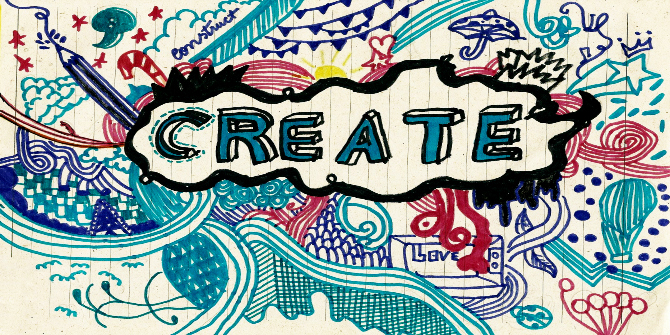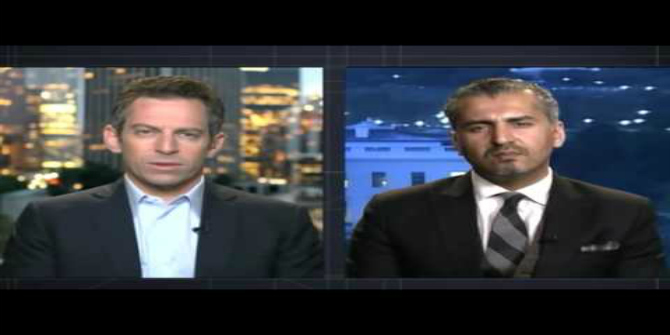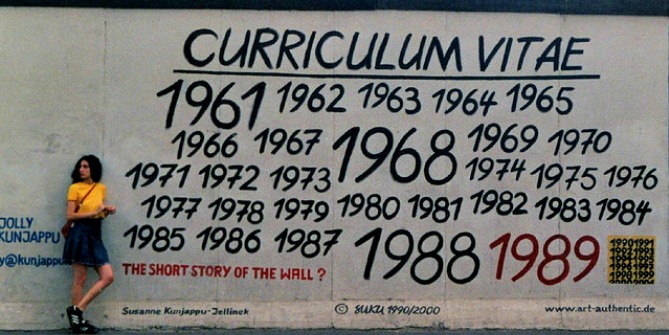 Since 9/11, the Muslim presence in Europe has been increasingly perceived as ‘problematic’. Events such as the French ban on headscarves in public schools, the publication of the cartoons in Denmark, and speeches by political leaders have hit the front pages of newspapers the world over, and prompted a number of scholarly debates on Muslims’ capacity to comply with the seemingly neutral and pluralistic rules of European secularity. Luca Mavelli argues that this perspective has prevented an in-depth reflection on the limits of Europe’s secular tradition and its role in Europe’s conflictual encounter with Islam. Reviewed by Marco Scalvini.
Since 9/11, the Muslim presence in Europe has been increasingly perceived as ‘problematic’. Events such as the French ban on headscarves in public schools, the publication of the cartoons in Denmark, and speeches by political leaders have hit the front pages of newspapers the world over, and prompted a number of scholarly debates on Muslims’ capacity to comply with the seemingly neutral and pluralistic rules of European secularity. Luca Mavelli argues that this perspective has prevented an in-depth reflection on the limits of Europe’s secular tradition and its role in Europe’s conflictual encounter with Islam. Reviewed by Marco Scalvini.
Europe’s Encounter with Islam: The Secular and the Postsecular. Luca Mavelli. Routledge. March 2012.
Various scholars have attempted to explain the European perceptions of Islam as intolerant and authoritarian, and why it seems that Islam cannot comply with the neutral and pluralistic rules of European secularity. In his new book, Luca Mavelli offers an original contribution to the discussion of Europe’s encounter with Islam, through a philosophical analysis of how secular development has shaped current perceptions and attitudes towards Islam in Europe.
Mavelli investigates how the transformation of the idea of knowledge associated with the emergence of the secular episteme has created seemingly irreconcilable differences between Europe and Muslims. The author considers several important questions, including how the secular conceptualization might affect a European capacity to connect with or exclude others, and how the individual exercise of rationality, which rules out faith from its remit, might affect modern dynamics of power and subjectivation.
Mavelli argues that in the Western European context, within this secular idea of knowledge it has become the necessary and inescapable condition to think of people as autonomous and free subjects (p.14). The secular mode of knowledge has become the epistemic framework that has marked the progressive withdrawal from the transcendent Other/God, by contributing to a parallel, progressive withdrawal from the Other (p.36). The secular subject is not required to embrace ‘alterity’ as a condition of knowledge of the Other, but can rely solely on his own rational faculties (p.20). As a consequence, argues Mavelli, this secular becomes a constraint that limits the European subjects’ possibilities of being, becoming, knowing and connecting with the Other. The Other is thus conceived as entirely contained within the structure of the secular subject and exists only as a projection of the secular mode of knowledge (p.16).
These philosophical issues have very concrete political implications for the presence of Islam in Europe. Mavelli focuses on how the secular understanding has contributed to strengthening the exclusionary character of collective forms of identification such as culture, religion and civilization, and has recently enabled political leaders such as Merkel, Cameron, and Sarkozy, and religious actors such as the Catholic Church, to play the role of champions for Europe’s secular identity against the threat represented by Islam (p.139).
In chapter one, the author offers a conceptualization of the secular as an epistemic framework of knowledge based on the separation of reason and faith through a discussion of the contending approaches of José Casanova and Talal Asad. It suggests that their perspectives represent the recontextualization of, respectively, Immanuel Kant’s idea of rational religion and Michel Foucault’s notion of spirituality.
Mavelli then articulates these theoretical insights into a genealogy of European secularity that runs through Thomas Aquinas, René Descartes, Immanuel Kant, Émile Durkheim and Max Weber. This genealogy shows how the ideal of autonomy championed by a notion of knowledge grounded exclusively in the rational faculties of the subject has progressively turned into a form of isolation.
In chapter three, the focus is on recent divisive public debates surrounding Muslims, such as the French decision to ban the veil, or the publication of the cartoons in Denmark. The analysis shows how these controversies were based on a process of immunization, which implies that the construction of Muslims as Others is an integral part of the process of reproduction of secular life (p.87). In other words, the secular subjectivity needs the Muslim Other to preserve the image of a superior European Self (p.115).
The fourth chapter explains the limits of European ‘constitutional patriotism’. The author argues that the question of European identity and belonging has been primarily shaped by a secular model of solidarity that promotes a system of communal allegiances based on the acceptance of and compliance with universally shared principles. This perspective aims to impose a model of universal inclusion beyond the national, cultural and religious particularistic specificities. At the same time this universalistic attempt to transcend differences postulates Europe in a dimension of exceptionality which excludes the Muslim Other (116).
The final chapter articulates a vision of the post-secular that may offer a path to overcoming the isolation and impoverishment of secular life. To this end, the author discusses Habermas’ recent ‘post-secular turn’ and Martin Buber’s philosophy of life as encounter. Specifically, Buber’s perspective provides a normative framework of post-secularity based on a model of solidarity between the Self and the Other based on a common fellowship in God.
Two important limitations about this book need to be considered. Firstly, the author states that an epistemic conceptualization of the secular makes it possible to focus on the more general secular assumptions that inform Europe’s attitude towards Islam and to exceed the differences that exist between European nation-states in terms of secular traditions (p.7). However, from an empirical point of view, national cultural and political contexts within Europe remain very different and the particular development of the secular affects the national prejudice or engagement toward Islam. These differences are also reflected in the political speeches given by Merkel, Sarkozy and Cameron mentioned in Chapter 5. Therefore, the dynamics of secularism are by no means simple and any transformative potential of the secular does not move in only one direction and cannot be assumed as unchanging, trans-historical, and universal proposition.
Secondly, religion can also give shape to the resentment and distrust of Islam that has become so deeply infused into pre-modern European culture. In fact, it cannot be denied that religion helped fuel the violent attitudes that resulted in the Crusades, the Spanish reconquista, and the expulsion of Muslims from Spain, Eastern Europe, and Southern Italy in the high and late Middle Ages (Cardini, 2001; Le Goff, 2005). Thus, the analysis of taking up either a religious or secularist discursive regime could be more efficient if based upon epistemic discontinuities rather than continuities, as these changes can vary greatly depending on the specific social and historical moment (Foucault, 2001).
Finally, the book is a remarkable attempt to offer insight and develop research on the contradictions within the European political project. In this respect, the book offers a compelling argument by suggesting that the present debate on Muslim integration is led on one hand by Europe’s incapacity to perceive Islam as an opportunity rather than a threat (143) and that this debate has its roots in a tension at the heart of the secular episteme (25), on the other hand by the attempt to integrate the Muslim Other through the imposition of universal narratives, which do not offer any perspective for who does not comply with the image of the European self (99).
Drawing on this twofold perspective Mavelli argues for a reconceptualization of the secular by turning the knowledge of the Other into willingness towards a reciprocal process of adaptation, transformation and learning, which would require Europeans, and not only Muslims, to become other than themselves.
——————————————————————————————-
References:
Cardini, F. (2001). Europe and Islam. Blackwell.
Foucault, M. (2001). Order of Things: An Archaeology of the Human Sciences (Routledge Classics). Routledge.
Le Goff, J. (2005). The Birth of Europe: 400 – 1500 (Making of Europe). Wiley-Blackwell.
——————————————————————————————-
Marco Scalvini is a LSE100 Class Teacher. His background includes also professional experience as a media professional in public and political communication (UNESCO, OSCE, UN, G8/G20). His PhD thesis is based on a discourse analysis of the public debate on Islam in Europe. It critically reflects on the apparent incongruity between the affirmation of universal citizenship norms and the portrayal of Muslim migrants as a contemporary threat to European cohesion and stability. He tweets @marcoscalvini and more information about him is available on his website. Read more reviews by Marco.








1 Comments